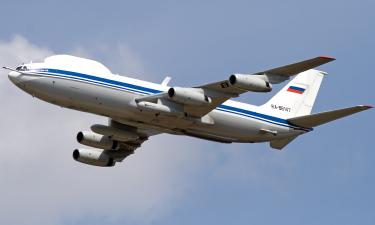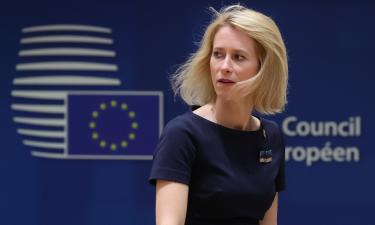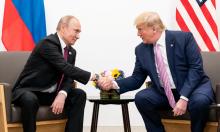Duma Elections: A Question of Tradition over Choice
The December 7 elections to the State Duma, the lower house of parliament, could not be less significant in political terms. The Duma was virtually incapacitated by the 1994 Constitution adopted under Boris Yeltsin. Consequently, the next Duma, whatever its line-up, will hardly have any political authority.
 Originally, the Dumas were generally opposed to the government, but only influenced policy to a negligible degree. The lower house will have to achieve an unprecedented degree of unity and opposition to emerge as a counterbalance to the ruling elite.
Originally, the Dumas were generally opposed to the government, but only influenced policy to a negligible degree. The lower house will have to achieve an unprecedented degree of unity and opposition to emerge as a counterbalance to the ruling elite.
Duma elections are similar to opinion polls in terms of their significance. The latter reveal public sentiments and their results are not legally binding. At the same time, the authorities' attitude to elections is becoming increasingly serious and they will continue to exert a strong influence on their outcomes.
Duma elections are important in their own way. Although indirectly, they can influence the outcome of the far more significant presidential elections. The lack of alternative options and the president's non-dependence on society is the essence of the Russian political system. In an effort to preserve this lack of an alternative, the president cannot but want to secure a parliament that has no alternative. It is not that an oppositionist Duma would pose some threat. This is rather a matter of principle, the desire to maintain order and utter control over society, as well as to deter even a minor threat to the established system. If the next Duma were to offer some opposition, it would be no more dangerous than the current Duma. Yet, it could dent the president's popularity, thereby encouraging his rivals to challenge him or his appointed successor in the 2004 or 2008 elections.
Russia's ruling authorities can only go on, scoring victory after victory. Every next Duma must be "better" than the previous one.
Is the regime going to succeed? Probably. And not only through no end of illegal and quasi-legal means to influence the election results. There is a more profound reason for success.
Voting in Russia is more than the choice of a political party or figure. The Soviet voting tradition was more of a display of loyalty to the ruling party, a kind of oath of fealty. The fact that election results are predetermined does not matter much to people motivated in this way. In Soviet times, people were not at all reluctant to vote. On the contrary, they joyfully went to polling stations, even though they knew their votes would not make a difference.
If there are no longer so many of these people in modern Russia as there once were, they still exist. The decision of the pro-government party United Russia to abstain from televised election debates was, therefore, quite correct. The party was betting on traditionalist-thinking electors who will arrive at the polls to swear the oath of fealty, ratherthan to elect.
There are also other things of great help to those in power. There are two opposition forces in Russia - the Communists, who make the left-wing opposition, and the liberals, or the right-wing opposition.
The traditionalist residents of villages and small towns account for a major share of the Communists' electorate. Such thinkers vote against the ruling regime if they do not consider it normal and "real".
In the Yeltsin era, traditionalist-minded individuals cast their votes for the Communists. They were not really opposed to the Yeltsin regime, but, nevertheless, felt that it was temporary rather than "real".
Incumbent President Vladimir Putin is not seen as being a temporary ruler. Indeed, he inherited power from Boris Yeltsin. Russia's political system has, since then, acquired many of the qualities of authoritarian rule so typical of Russia.
Traditionalist-minded electors started abandoning the Communists for the party of power during the 1999 elections. This process is unlikely to cease. Media reports on the Communists' links to the oligarchs, something right-wing publications have kept fanning, will apparently contribute to the process.
However, right-wingers do not stand to gain from the consolidation of central power either. Their electors, who take elections more sensibly than the traditionalists, do not have any real reason to vote. There is an option to vote "against everyone." This is a chance of expressing a protest against the lack of alternative and increasingly formal and, therefore, pointless elections, and a refusal to play the game, in which the results are already known.
Such voters formed a noticeable group in the 2000 presidential elections, especially in Moscow and St Petersburg. In the latter city, for example, they accounted for as much as 12% of voters during the recent elections of St. Petersburg governor.
The ruling elite has every opportunity to see a still more obedient parliament elected. However, it will start to encounter difficulties at a later stage. The traditionalist electorate will shrink as a result of natural social and demographic processes. To continue achieving the desired results, the elite will have to further toughen control over elections, thereby depriving them of any sense whatsoever. Indeed, the results of further elections have to be no worse than previous election results. This will eventually lead the authorities to do what its Communist predecessors did, i.e. ensure the support of 98% of voters for the "bloc of Communists and non-partisans".
However, if the political leadership is smart enough not to make serious mistakes, this will not happen any time soon.
Dmitry Furman, Professor, Doctor of History and senior researcher at the Russian Academy of Sciences' Institute of Europe
RIAN
Subscribe to Pravda.Ru Telegram channel, Facebook, RSS!




